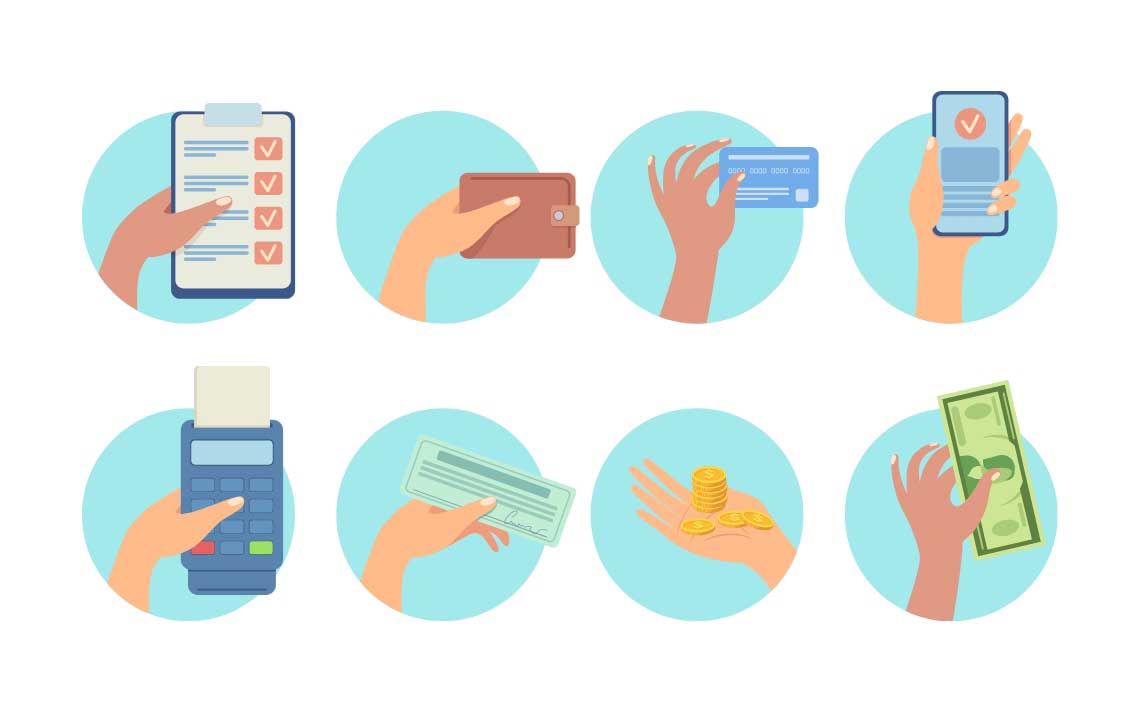Satellite Internet is your best bet in areas where other mainstream types of internet are unavailable. An estimated 3.29 million people use satellite internet, with its availability across 50 states.
However, choosing the right satellite provider among the top three American options is tough. Among the contenders, Starlink, Hughesnet, and Viasat are notable ones.
Common Questions to Ask While Purchasing a Satellite Internet Connection
Satellite internet comes with its own set of virtues and vices. Before you sign on the dotted line, there are some important queries you should address to your prospective satellite provider. Let's dive into them.
1. Will the Weather Affect the Satellite Internet Speed?
The weather conditions often interfere with the quality of satellite internet signals. Conditions like heavy cloud cover, rain, thunder, and snow storms can dampen the signal. Heavy rain can trigger a phenomenon called “rain fade”. This means that the signal transmission between the satellite and your dish antenna is disrupted due to electromagnetic interference caused by storms.

It can go on for a few minutes to a few hours. The frequency of rain fade is different for providers based on their satellite's orientation in space. Therefore, it is important to inquire with your prospective provider about how often you can expect to have downtime. Additionally, you can also ask for tips to improve the connection in the event.
2. What Will Be the Response Time if I Have an Issue?
No one likes holding onto the phone or finally getting to the agent and still not having their issue acknowledged or addressed. This is why response time from customer services is the most important cornerstone of a user's experience with the product or service. Hence, you must ask about how long it will take for the customer support agents to get back to you and resolve your issues.
3. Is There an Early Termination Fee?
You will find during your research about satellite ISPs, that a few have lengthy contracts that you sign up to while subscribing. This comes with the implication of a heavy cancellation fee. Stay mindful of what you might end up paying for.
If you think entering a long agreement is inevitable, make sure you know about the early termination and if it falls in your ballpark. If not, you are better off subscribing to a provider that does not hold you to a contract.
4. What Kind of Equipment Will You Install?
When you are looking through different plans from different satellite internet companies, you will have shortlisted some prime options. However, some options look like a good deal on paper but later turn out to have hefty equipment rental or upfront costs.
Make sure to ask the provider if the equipment is included with the plan or if you have to pay a monthly rental fee in addition to service charges. Ask them what things you will have to purchase; whether they will provide you with the equipment or you have to buy on your own. It comes in handy when you are creating a budget for your satellite internet expenses.
5. What Will the Upload and Download Speed Be In My Area?
Knowing about what speed you should expect from your provider is crucial. Different internet usage habits require different speeds like work from home, gaming, or streaming. Figure out if this speed will suffice you based on your internet requirements.
Make sure you ask your provider about the upload and download speeds so you have a better idea of what to expect. You should also confirm if the real speeds and advertised speeds are the same.
6. How Can I Increase the Signal Strength of Satellite Internet?
Satellite internet, by its very nature, is not the best option out there. However, if you don’t get DSL, fiber, or cable in your area, it is your only option. This comes with the consideration that you will experience compromised signals sometimes. This is exactly what you should ask your satellite internet agent.
They will likely guide you with tips on improving your satellite internet signal like removing shrubbery or other obstructions that may be blocking the signal or adjusting the receiver’s location for better orientation. The provider may also offer insights into helping equipment like Wi-Fi extenders and satellite in-line amplifiers that tend to improve signal quality.
7. How Much Time Will Installation Take?
You could be someone who works from home, or your kids use internet research for homework. If you have some time-sensitive internet usage, knowing how long it will take to install a satellite internet connection is important.
There is nothing more frustrating than missing half your payday to sit around waiting for an installation to pull through. An installation can span from a few hours to a few days subjective on who your provider is and where you live.
For this reason, having a timeline helps you make alternate arrangements. Always make sure you confirm the duration of installation with your provider.
8. Are There Any Charges for Moving the Connection?
No one wants to invest in an internet connection with the upfront fees all over again. This is why you should always ask your provider if they charge for moving your connection to a new location. Among Hughesnet, Viasat, and Starlink, the reinstallation charges vary, which are just dependent on the coverage area.
If your new address falls in the same service area, then you might not need to pay a dime. It really helps to inquire about all this before deciding.
9. What are the Different Billing Options?
Billing methods in different satellite internet companies tend to be diverse. Internet companies have different ways of charging the customer:

It is very important to analyze your billing method and scan your charges thoroughly. This will help you make a more practical decision.
10. Are There Any Add-Ons or Voice Services That You Offer?
Sometimes we end up ignoring the advantages of subscribing to a plan. In reality, you could get much more from your connection and save a little in the process. Ask your sales service agent about the add-ons such as television, voice, etc.
It is a good idea to weigh your options; knowing how much your plan costs if you bundle the services with your satellite internet. This might not seem like a priority at first but it is very cost-effective if you are planning to use this ISP in the longer run.
Things to Know Before Subscribing to Satellite Internet
Even with the questions listed above, you should be knowledgeable regarding some technical aspects of subscribing to satellite internet, including:
1. Limitations
With its easy coverage across remote and rural areas, satellite internet comes with its own set of complications. These include:
There are also bigger drawbacks like the inability to use VPN over satellite and the signal susceptibility to bad weather.
2. Data Safety
Satellite internet is just as secure as other internet technology. You can rest assured that your data is encrypted protecting your privacy and guarding you against cyber threats.
3. Speeds
On average, Satellite internet providers give you a download speed range that lies somewhere between 25 Mbps and 150 Mbps. Whereas the upload speed comes somewhere around 3 Mbps on the minimum.
FAQs
Is 4G faster than satellite internet?
No, 4G is much faster than satellite internet due to minimal latency (below 100 ms) whereas a satellite can go higher than 500 ms.
Is satellite internet any good?
Yes, satellite internet is good to use in rural and remote locations where ordinary cable or fiber internet isn't available.
How fast is satellite internet?
Compared with cable and fiber, it isn't that fast with speeds going only as high as 200 Mbps that too depending upon the provider.



